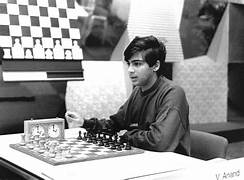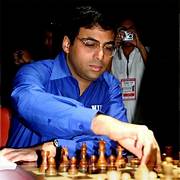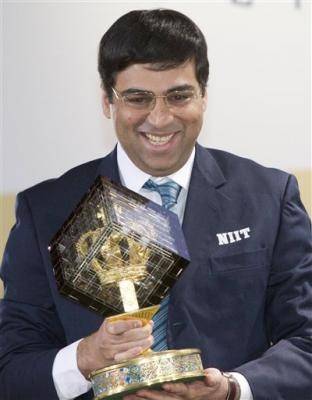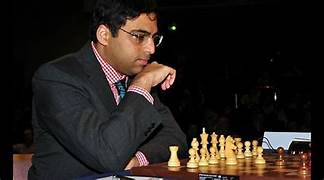 |
 |
 |
 |
Introduction
Vishwanathan Anand, a name synonymous with chess, has not only made India proud but has also inspired countless individuals worldwide. Known for his deep understanding of the game, Anand's career spans several decades, filled with remarkable victories, ground-breaking achievements, and a passion for chess that continues to inspire both young and seasoned players.
Early Life and Introduction to Chess
Born on December 11, 1969, in Chennai, India, Vishwanathan Anand was introduced to chess by his mother, Susheela. Anand's early life was marked by a keen interest in various intellectual pursuits, but chess stood out as his true calling. By the age of six, he was already competing in local tournaments, displaying a natural aptitude for the game. His rapid progress was evident when he became the youngest Indian to earn the title of International Master at the age of 15.
Rising Through the Ranks
Anand's rise in the chess world was meteoric. In 1987, he became the first Indian to win the World Junior Chess Championship, which catapulted him into the international spotlight. This victory was a precursor to his success in the following years. In 1988, he earned the Grandmaster title, making him the first Indian to achieve this distinction. His fast and aggressive style of play earned him the nickname "The Lightning Kid."
The Path to World Champion
The 1990s were a crucial decade for Anand as he steadily climbed the ranks of the chess world. His consistent performance in international tournaments set the stage for his bid for the World Chess Championship. In 2000, Anand won the FIDE World Chess Championship, defeating Alexei Shirov in Tehran, and became the first Indian to hold the title of World Chess Champion. This victory was not just a personal milestone but a historic moment for Indian sports.
Dominance in the 2000s
Anand's dominance in the chess world continued into the 2000s. He defended his title successfully in multiple formats and against formidable opponents. His victories in the World Rapid Chess Championships in 2003 and 2017 showcased his versatility and adaptability. Anand's unique ability to excel in different formats of the game earned him widespread acclaim.
The Rivals and Iconic Matches
Throughout his career, Anand has faced some of the greatest chess players of his time. His matches against Garry Kasparov, Vladimir Kramnik, and Magnus Carlsen are etched in the annals of chess history. The 2008 World Chess Championship against Kramnik, held in Bonn, Germany, was particularly notable. Anand's innovative preparation and deep understanding of the game helped him retain his title, solidifying his reputation as a world-class player.
Contributions Beyond the Chessboard
Anand's influence extends beyond his achievements on the chessboard. He has played a pivotal role in popularizing chess in India and globally. His success has inspired a generation of young Indian chess players, leading to a chess boom in the country. Anand has also been involved in various initiatives to promote chess in schools, emphasizing the educational benefits of the game.
Awards and Recognition
Vishwanathan Anand's contributions to chess and his country have been widely recognized. He has received numerous awards, including the Padma Vibhushan, India's second-highest civilian award, in 2008. His legacy is not just defined by his titles but also by his humility, sportsmanship, and dedication to the game.
The Continuing Journey
Even after decades at the top, Anand continues to be an active and influential figure in the chess world. His participation in tournaments, involvement in chess promotion, and mentorship of young players demonstrate his enduring passion for the game. Anand's journey is a testament to the power of perseverance, intellect, and a love for chess.
Conclusion
Vishwanathan Anand's legacy is one of brilliance, inspiration, and unwavering dedication. His journey from a young boy in Chennai to a world chess champion is a story of dreams realized through hard work and passion. Anand has not only elevated the status of chess in India but has also left an indelible mark on the global chess community. His life and career continue to inspire new generations of chess enthusiasts, proving that with talent and determination, one can truly conquer the world.